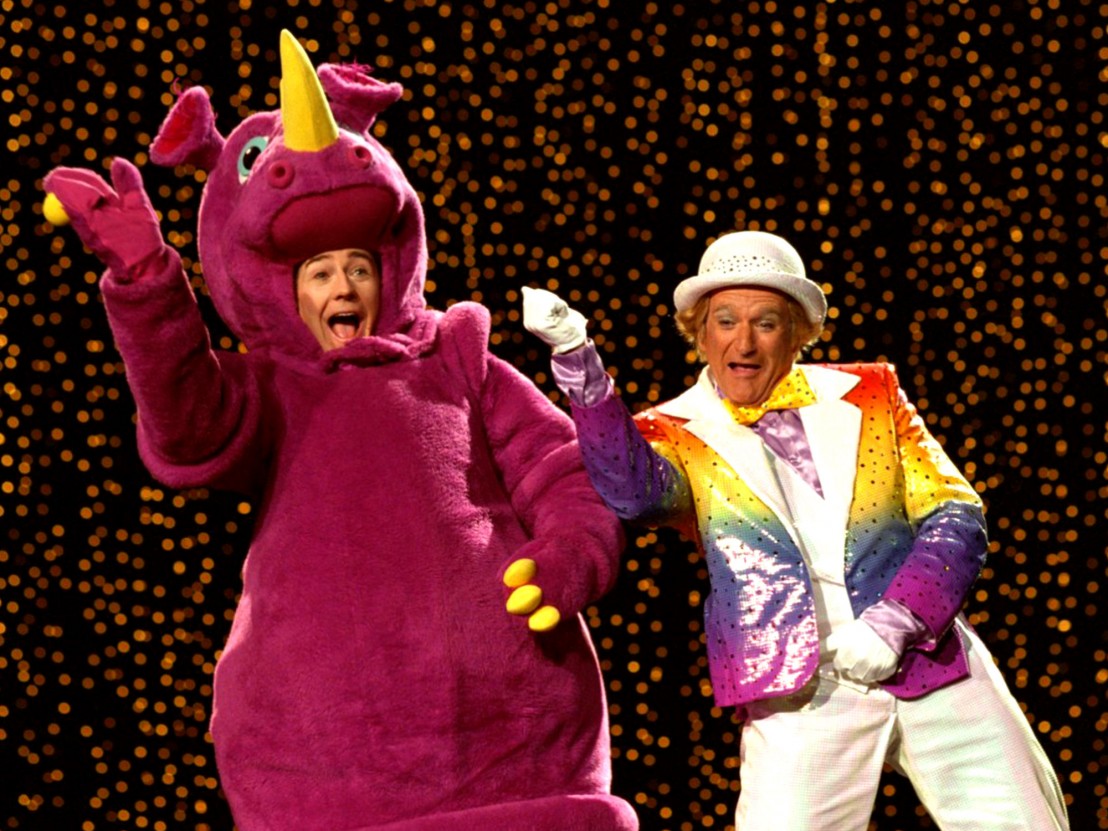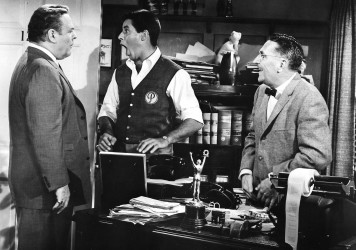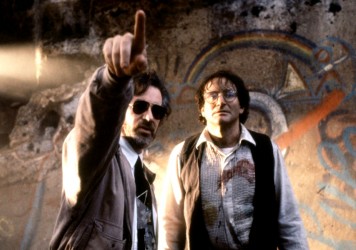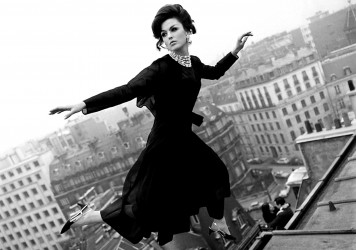
Once a film has been critically tarnished, it’s hard to come back from that. As soon as the negative reviews start to drop, public perceptions are formed and the box office is often affected accordingly. Yet it’s fairly common for a film to be met with critical apathy upon its initial release, only to assume the mantle of overlooked gem later on. Fourteen years after its disappointing theatrical run in 2002, Danny DeVito’s absurd black comedy, Death to Smoochy, exists as one such film.
The twisted satire both illuminates and mocks the brutality and corruption behind the ruthless industry of children’s television, and makes no bones about it. Rainbow Randolph (Robin Williams) is fired from his job as a children’s TV host and replaced by Smoochy (Edward Norton), an overly optimistic performer in a fluffy, fuchsia rhinoceros costume who skyrockets to fame, despite not being able to fathom the idea that his colleagues, unlike him, are solely in it for the money. Inevitably, the cutthroat nature of the industry means that Smoochy becomes a target of not only Randolph’s vengeance, but also the people pulling the strings.
Death to Smoochy flopped at the box office, grossing a little shy of $8.5m domestically. Critics were quick to slam the film as ‘odd’, ‘inexplicable’ and ‘unpleasant’. Such descriptions were not wrong. Indeed, Death to Smoochy is all of these things, but as a cynical comedy, this is all part of its charm. While the film pivots around children’s characters, it is not a children’s movie in the slightest. The seedy, deeply disturbing underlying nature of the film is disguised by the colourful, child-like context of the industry which it mocks. Essentially, it’s about sociopaths pursuing and trying to kill their rivals, demonstrating how money is the root of all evil.
Above all, though, it’s about greed. DeVito has been known to both direct and act in films that poke fun at society’s weaknesses in equal measures of maliciousness and light-heartedness. Here he ridicules the children’s entertainment industry while bringing to light the commercial, dog-eat-dog aspect of children’s television by exemplifying the profitable agenda of selling plastic and sugary commercial products off the back of the television shows. “We’re not looking at kids, we’re looking at wallets with pigtails,” are DeVito’s own words, echoed by Smoochy as he struggles to comprehend the sheer magnitude of manipulative scheming that goes on beneath the surface of an industry that, as he sees it, exists to provide entertainment for children.
The film’s morbid sense of humour is perhaps most prominent in Robin Williams’ highly amusing performance as a corrupt kiddy-host bordering on clinically insane. His twisted take on Rainbow Randolph is evidence of his acting diversity, also evoking some of his early stand-up work. What explicitly seeps through in Williams’ performance is his former relation to the backstabbing side of the business based on his own experiences in television, with the popular sitcom Mork & Mindy being cancelled after its fourth season.
Whether it’s framing Smoochy into performing live at a neo-Nazi rally, or replacing a batch of cookies with penis-shaped biscuits on Smoochy’s live show before proceeding to run on stage shouting obscenities such as “It’s a one-eyed wonder weasel!” in front of the preteen studio audience, Williams only adds to his hilarious legacy. It’s his outrageous performance that makes this tremendously funny, admittedly absurd satire well worth revisiting.
Death to Smoochy is now available to buy or rent on iTunes and Amazon, along with 39 titles from Film4’s library. Check out the full list at film4.com
Published 1 Aug 2016

Jerry Lewis’ classic 1961 comedy provided inspiration for the Coen brothers’ peek inside the Hollywood machine.

By James Clarke
Does the director’s take on JM Barrie’s classic tale of arrested development deserve its reputation?

Ben Stiller’s comic creation channels the absurd charm of ’60s cult classic Who Are You, Polly Maggoo?